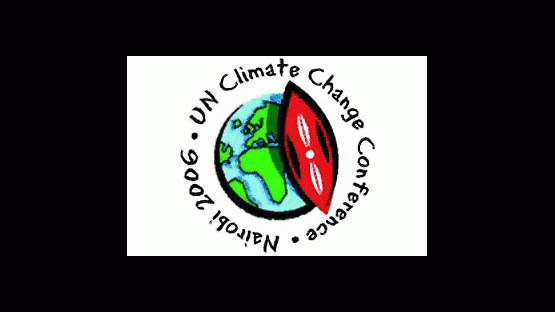Nuclear power is not a "fix all" but it can help to reduce the risk of climate change, a United Nations Climate Change Conference in Kenya has heard. Speaking at a session on Global Status and the Outlook for Nuclear Power, the IAEA´s Alan McDonald said nuclear power had a place among the mix of solutions for those countries interested in making it part of their sustainable development strategies. The conference concludes this week in Nairobi.
With expectations for nuclear power rising, Mr. McDonald, a senior officer in the IAEA Department of Nuclear Energy, emphasised that it was economics that would drive the energy technology´s future. "Whether nuclear power lives up to rising expectations will depend on how cheap it is compared to alternatives," he said.
Mr. McDonald noted that the Kyoto Protocol changes the economic picture, bringing to fore some real financial benefit to avoiding greenhouse gas emissions. Nuclear power, for example, is more attractive in countries with rapidly growing energy demands, like China and India; and where alternatives sources are scarce or expensive, like in Japan and South Korea. "Nuclear energy plants are expensive to build but cheap to run," he said.
The conference runs from 6 to 17 November in Nairobi and has attracted some 6,000 participants worldwide. It comes amid news that China is on course to surpass the US in 2009 as the biggest emitter of the main gas linked to global warming, a projection noted in a report released last week by the Paris-based International Energy Agency of the Organization for Economic Cooperation and Development. China also stands among countries voicing interest in pursuing or expanding nuclear energy programmes for electricity generation.
Scientists point to carbon dioxide, methane and nitrous oxides as being three of several gasses that, in excess, forms a barrier in the atmosphere that traps heat from the sun to raise the earth’s temperature. The resulting global warming is linked to increasing droughts, floods, hurricanes and forest fires, posing a serious threat to sustainable development.
Mr. McDonald said nuclear power was "on par" with solar and wind energy when it comes to greenhouse gas emissions. The full nuclear power chain, from resource extraction to waste disposal, emits 1-6 grams of carbon per kilowatt-hour – about the same as wind and solar power and well below coal, oil and natural gas.
Are more nuclear plants on the horizon? The IAEA is holding a workshop in early December with representatives from countries expressing interest in nuclear energy for electricity production.
Right now, there are 442 operating nuclear power plants around the world, with current expansion centred in Asia. The United States has the most nuclear plants with 103. France is next with 59, followed by Japan with 55 plus one under construction, and Russia with 31, and four more under construction.
"The main message is that nuclear power is still a big developed country game," says Mr. McDonald. "If today´s rising expectations are met, it will be because the countries that already use nuclear power will have built more, not because a lot of new countries – developed or developing – have decided to start new programs."


